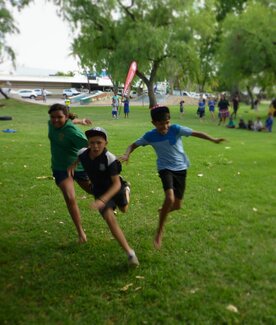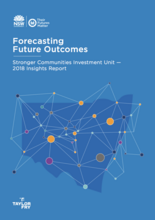

Displaying 281 - 290 of 677
UNICEF is seeking a Child Protection Specialist in Fiji.
"Maori groups in New Zealand are taking to the streets to protest family separations carried out by the child welfare agency and a planned development on their ancestral lands," according to this article from CNN.
This paper explores foster carers’ therapeutic capacities and considers some key implications for fostering agencies.
This open access article details a culturally informed approach by sharing the findings of a Cultural Healing Program (CHP) designed, developed and delivered by an Aboriginal Community Controlled Organisation. The program was for Aboriginal survivors of institutional child sexual abuse who had also experienced cultural abuse having been forcibly removed from their families as children and in the process disconnected from their communities, culture and land.
As foster and kinship carers are central to the lives of looked after children, it is important to recognise their unmet needs and the impact of these on the caring task. This article explores these issues by applying a hierarchy of needs to the foster and kinship care context, drawing on the perspectives of those involved, a group of Australian foster and kinship carers.
This editorial piece from the Sydney Morning Herald describes a new report released by the Government of New South Wales, Australia entitled 'Forecasting Future Outcomes,' which "gives a hard financial justification and a possible methodology for early intervention to protect certain vulnerable groups of young people before it is too late."
This report, which was authored by Taylor Fry with support from Their Futures Matter (TFM) - a landmark reform of the Government of New South Wales (NSW), Australia to deliver improved outcomes for vulnerable children, young people and their families - and stakeholder agencies, presents key results and insights from the TFM Investment Model, an actuarial model of future outcomes and costs of providing key government services to children and young people in NSW.
UNICEF is seeking an international consultant for Technical Assistance to Social Welfare Ministries in Child Protection in Nauru, Solomon Islands and Tuvalu.
UNICEF Pacific is seeking a consultant for Child Protection in Education for Pacific Island Countries.
UNICEF Pacific is seeking an international consultant for Child Protection System Policy Development for Pacific Island Countries and Territories.

